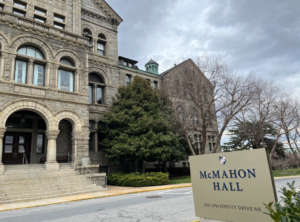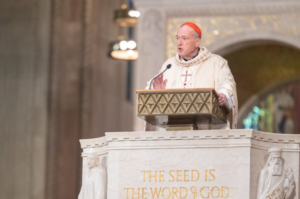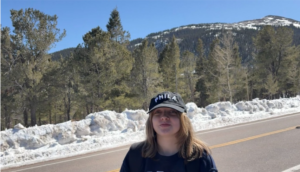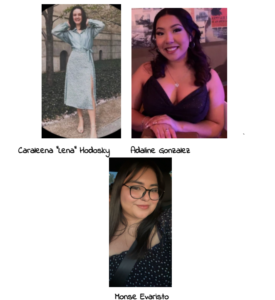A Virtual Celebration of the Catholic Intellect: Research Day 2020
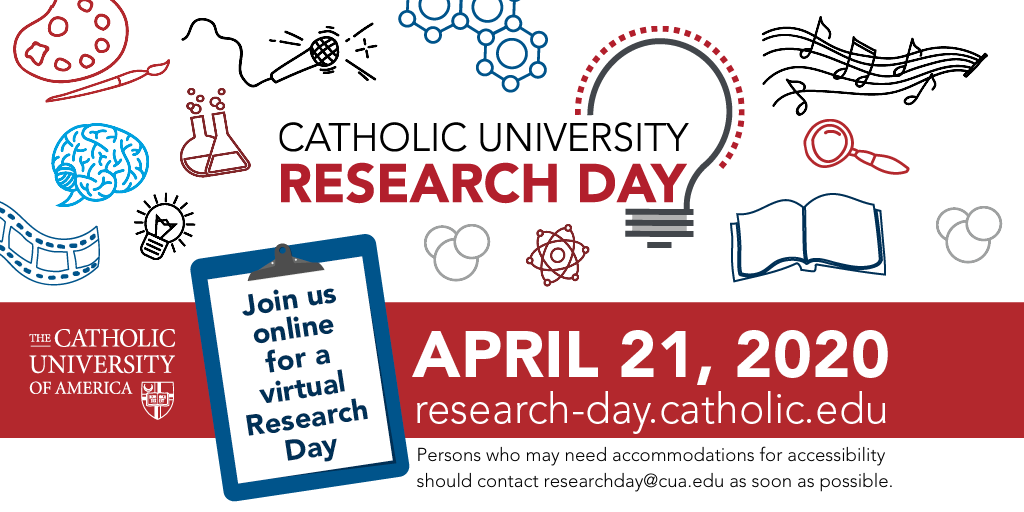

By. Julianna Guthrie
On Tuesday, April 21, Catholic University had the opportunity to host its 5th annual University Research Day. In the era of zoom call birthday parties and proms, over 260 faculty, student, and staff members of Catholic University joined in to have the opportunity to share their hard work with not only the CUA community, but thousands of others around the world.
Professor Anita M. Shagnea, co-chair of the University Research Day along with Dr. Xiaolong Luo, noted that over 3000 people visited the Research Day website on Tuesday, accounting for a total of over 5000 views. Shagnea said that when online classes were first announced, the Provost said that “although no one wanted this situation, we could use it as an opportunity to learn and come up with new ideas.”
“An online Research Day is definitely a new idea!” said Shagnea. “Who would think that an event like this could come together with so many people participating, and that we as a University community would have the capability to pull all this together in a little over one month? It’s amazing.”
Participants were asked to create public Google doc folders that contained any relevant work in the form of video, powerpoint, or document. There were question forms made available to audience members to fill out and presenters could respond to them in real time.
Senior Sarah Harrigan, who presented “From Plantations to Popes: A History of Early Brookland”, recounted how the participants were notified that research day was still on, and how the senior thesis professors and research day committee helped students adapt.
“The research day committee sent emails a couple times a week and directions and made sure that we all understood what was going on,” Harrigan said. “Even on the day of my presentation, I had some technical difficulties and the committee was right there to answer questions via email in a couple of minutes which was awesome. Everyone was just on their A-game in terms of communicating which I think also helped the event run more smoothly.”
In these uncertain times, participants were eager to be able to showcase their work online.
“It was nice being able to share my poster online with many more people,” said junior Johnathan Harrison, who had a poster presentation entitled “Determining Inositol Pyrophosphate Binding to Pleckstrin Homology Domains.”
Although a virtual Research Day was the answer to a quarantine era America, it did present some challenges. For junior Elizabeth Hughes, who completed an oral presentation entitled “The Writing Center’s Lack of Focus: Tutoring Students with ADHD”, going virtual meant losing one of the most essential parts of presenting: interaction with the audience.
“Normally when I give a presentation I rely on the audience’s reactions to help me, but this time, I couldn’t do that,” Hughes explained. “What was a wonderful surprise, however, was that I got the audience’s reaction, but in a virtual way because my professors and friends emailed or texted me responding how much they liked my presentation!”
Senior Catherine Robben, who presented a presentation “The Effect of Mood-State on Implicit Memory and Learning”, compared her experience this year with past years participating in research day, calling it “much more accessible than usual”.
“I really liked that I could make a note of the posters and presentations I was interested in and could view them at my convenience, without the risk of times overlapping or needing to plan my route between presentations as I normally do,” Robben said. “I also really like that the presentations are still available to view online which takes a lot of pressure off trying to see and take in everything all at once which can be pretty overwhelming.”
This year’s keynote speaker was director of the CUA Suicide Prevention Lab, Dr. David A. Jobes. He began his address by highlighting the great opportunity a virtual research day offered.
“I’m honored to be able to give you this keynote on these most trying of days during the global pandemic in our adjustment to do this online,” Jobes said. “Research day for many of us as a highlight of the academic year and I’m just so thrilled to bring this perspective to you.”
His presentation was entitled “The Psychology of Life: Lessons Learned from the CUA Sucide Prevention Lab”. He discussed a technique he developed over the course of the last 30 years called CAMS. The CAMS focuses on 4 pillars: Empathy, Collaboation, Honesty, and Suicide-focused. The end goal is to create a more intimate therapist to patient relationship in order to give the patient a greater incentive to heal.
President Garvey echoed Dr. Jobes’ sentiment on the importance of research day in an email correspondence sent to the CUA community. He quoted a speech delivered by Pope Benedict to CUA students.
“In 2008 Pope Benedict visited Catholic University and gave a talk about higher education. He spoke about ‘the noble goals of scholarship and education [as] especially powerful instrument[s] of hope’,” Garvey wrote. “Research Day demonstrates the pope emeritus’s meaning. Our students and faculty have worked to address so many of the world’s problems. Their work, on display here, inspires hope.”
At 4p.m. that evening, a live award ceremony was held via zoom call. Best poster and oral presentations were awarded at the undergraduate, masters, and Ph.D. levels.
What began as an alternative to an unprecedented situation now is being considered a nice addition to the CUA annually held event. Both Shagnea and President Garvey expressed interest in the addition of a virtual Research Day every year.
Senior Veronica Smaldone. who presented “Because We Are One:” The Civil Rights Movement Comes to Catholic University”, thanked the research day committee for its work and “impressive adaptability” moving the event to an online format, and called this year’s event the “this is the most memorable Research Day to date.”
Projects and presentations are still live on the Research Day website.


